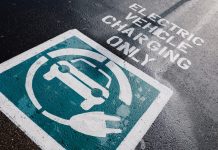With so many vehicles to choose from along with appealing leasing products, the whole process can become quite overwhelming. Today we have put together this article as a useful outline of the positive and negative factors to keep in mind with buying or leasing a new car.
Buying a Car
Generally, buying a vehicle outright and keeping it for several years is the cheapest way to purchase a car and can save you thousands on monthly repayments. However, not everyone can afford to buy a vehicle up front for thousands of dollars and drive away the same day. But if you can save for a one-off payment and purchase the car in full, then you build what’s called equity in the vehicle. This investment means that you are the only person who has ownership over the car, so if in the future you decide to sell it, you don’t have any outstanding balances or have to pay any lenders back. No additional mileage charges, no hidden fee’s, no outstanding debts, you have purchased the car, and now it is yours to drive away in and do as you wish. Consider when you are buying a vehicle outright is that you don’t have to worry about meeting the high demands of lenders with a sparkling shiny credit history. You get to buy the car and often drive away the same, or next day.
However, there are negative points when purchasing a vehicle outright to consider. Number one is that no matter how old, or how new, the minute you drive that car out of the dealership it decreases in value. Many people are not aware of this, even if you returned the following day and wanted to trade the car in for another one, the likelihood is that the dealer would offer you a lower value for the vehicle. This is usually the case when either buying or leasing a car but consider that if you have just spent a large lump sum, you will be out of pocket quicker than if you had only paid a deposit and or an initial instalment. Yes, you always have the option of selling the car privately, not through a dealership, but it is unlikely that you will ever get anywhere near the total price you paid for it back.
Generally, when you purchase a vehicle in full without using lenders, you will keep the car for many, many years as you have spent a lot of time and money saving towards it. This may be seen as a decisive factor to many people, but consider that over time technology advances and newer, shinier models will come on the market that you could miss out on.
Pros of Buying
- You get to own the car outright.
- You do not owe anyone anything, you are the sole owner.
- You can sell the vehicle whenever you want.
- You’ll keep all profits from selling the vehicle.
- You are not limited to mileage restrictions.
- The vehicle is yours to modify or change as you wish.
Cons of Buying
- The vehicle will depreciate in value from what you paid for it.
- You will require a large upfront lump sum.
- You will have the vehicle for a long time.
- Possibly missing out on innovative newer models and technology.
Leasing a Car
Leasing a vehicle can also be a brilliant option for those who don’t have enough cash to purchase a car outright. However, it too is not without its disadvantages that you need to consider before tying yourself into an agreement. The first benefit is that you get to drive the car away a lot quicker than if you spent months saving from your pay packet. As long as you have enough for the initial down payment and a secure credit file, you’re good to go. Another significant aspect of leasing a vehicle is that you have access to the newest models and shiny new offers that are available on the market. It usually is less expensive than buying a car outright, as more often than not, people tend to trade in the vehicle for an upgrade after a specific period, since you have more flexibility with your budget. Most dealerships have offers which you may be interested in, such as business owners sometimes receive a discounted monthly instalment price or tax reduction costs.
But like anything, leasing a car has its downsides too. Limitations being the number one factor. Since you don’t actually own the vehicle yet, there are rules and regulations you have to follow in order to abide with the agreement you have consented to. Usually, this is related to the number of miles you drive each year. Virtually all car finance products come with mileage limitations. If these restrictions are breached, it can result in hefty penalties and hidden charges and don’t think the dealers won’t check upon returning the vehicle because they most definitely will. When the lease term is up, you will require to return the car which will more often than not, leave you out of pocket. You will be expected to provide a healthy track record of the car’s service history and maintenance, as car dealerships will inspect the vehicle with a fine-tooth comb.
It is essential to consider all factors of the above and carry out your research to determine which outcome is better suited to your situation.
Pros of Leasing
- You can drive away in the vehicle with less money upfront.
- You can spread the cost over monthly instalments.
- Lease payments are almost always lower than purchase costs.
- You will not be affected by future depreciation in value.
Cons of Leasing
- You don’t own the vehicle.
- You are limited by mileage restrictions.
- You have to provide proof of maintenance and servicing.
- You may face additional fees and charges if you breach your agreement.
- You may be required to return the vehicle.






